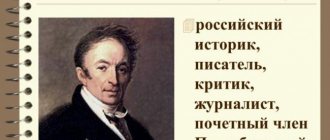A lot has been said about time, because it is human nature to philosophize about things that are not tangible to the senses. Everything flows, everything changes... The author of this saying seemed to have captured the very essence of time, its human sensations and contained them in a few words. To this day, the phrase from Antiquity is being reinterpreted by great minds and ordinary people. It turns out to be relevant for millions of life situations. They speak about the changeability of existence in a new way, but the meaning comes down to one thing: everything flows, everything changes. Who said this phrase first and other details about it are the topic of our article.
Authorship
As we know, many of the everyday phrases used have a very specific author. Alas, his personality is simply not associated with the saying due to a lack of facts. We started our article about the saying “Everything flows, everything changes.” We will find out who said it, capturing it throughout the centuries and passing it on to the present day.
Heraclitus captured the expression “everything flows, everything changes” among the lines of his only written work, “On Nature.” The philosopher’s work was read by later scientists of the ancient period, and the aptly spoken phrase became an expression of those thoughts that haunted all generations of great minds.
Notes[edit | edit code]
- ↑ Serov, Vadim.
Encyclopedic Dictionary of winged words and expressions. - M: Locked Press, 2003. - ↑ Plato.
Cratylus // Collected works in four volumes. - M: USSR Academy of Sciences Institute of Philosophy. Thought, 1990. - T. 1. - P. 636. - ↑ Plato.
Kratule // Œuvres de Platon. Traduction française de Victor Cousin. Cratyle ou de la proprieté des noms. Le Sophiste ou de l'être. Le politique ou de la royauté. - Paris: Rey et Gravier, 1837. - T. XI. — P. 402a. - 544 p., in fragment 401c there is a phrase similar in meaning - “τὰ ὄντα ἰέναι τε πάντα καὶ μένειν οὐδέν.” - ↑ Losev A.F.
A brief analysis of Plato’s dialogue “Cratylus” // Plato. Collected works in four volumes. - M: USSR Academy of Sciences Institute of Philosophy. Thought, 1990. - T. 1. - P. 826-827. - ↑ Losev, 1963.
- ↑ Aristotle.
Book 13 // Metaphysics, ed. W. D. Ross (undefined). - Oxford: Clarendon Press, 1924. - P. 1078b. - ↑ Ἀριστοτέλης.
Book 1. Κεφ. Β'. // Περὶ Ψυχῆς. Μετάφραση-Σχόλια Παύλου Γρατσιάτου (undefined). - Αθήνα: Φέξη, 1911. - P. 405a. - ↑ 12
Losev, 1963, p. 355. - ↑ Losev, 1963, p. 355-156.
- ↑ Translated by N. B. Klyachko - Plutarch.
About “E” in Delphi, translation from ancient Greek by N. B. Klyachko // Bulletin of ancient history. - M, 1978. - No. 1. - ↑ Makovelsky A.
Pre-Socratics. - Mn: Harvest, 1999. - 784 p. - ↑ Canto-Sperber M. (editor).
An example of a critical analysis of sources: about the sources of one “famous” fragment of Heraclitus // Greek philosophy: Collection. - M: Greco-Latin Cabinet of Yu. A. Shichalin, 2006. - T. 1. - ISBN 978-5-87245-121-0. - ↑ Mamardashvili M.K.
Lecture 6 // Lectures on ancient philosophy. - M: Agraf, 1999. - P. 127-128. - (The path to obviousness). - ↑ Losev, 1963, p. 352.
- ↑ Aristotle.
Book 4 // Metaphysics, ed. W. D. Ross (undefined). - Oxford: Clarendon Press, 1924. - P. 1010a. - ↑ 12
Losev, 1963, p. 354-355. - ↑ This point of view was also shared by: Wheelwright PH
Heraclitus (English).
- Princeton University Press, 1959; Kirk GS
Heraclitus, The cosmic fragments (English).
- Cambridge, 1962. - P. 367-380., Kirk GS;
Raven IE The presocratic philosophers (English). - Cambridge, 1962. - P. 196-199. - ↑ Publius Ovid Naso.
XV, 177-179 // Metamorphoses. Translation from Latin by S. V. Shervinsky. - M: Fiction, 1977. - ↑ Goethe, Johann Wolfgang von.
When in the vastness of nature // Collected works in 10 volumes. - Md: Fiction, 1975. - P. 102. - ↑ Yulia Rai. Richka (2002). Album “You Will Love Me” (2007).
- ↑ About The Society of Rheology.
Further use
Heraclitus' On Nature had a significant influence on Plato's writings. He even quoted a saying that interests us. As we see, Heraclitus' philosophical remark soon became a catchphrase.
Future generations have more than once succeeded in reflecting the changeability of life in short phrases. So, among the Romans the expression turned into a short and eloquently unsaid: “Everything flows.” By the way, the literal translation from the original about the changeability of everything sounds like this: “Everything flows and moves, and nothing remains.”
In literature, art, culture and science[edit | edit code]
Ovid used the phraseology of Heraclitus in his “Metamorphoses” in the Latin version “cuncta fluunt” in Book XV: “... there is no constant in the universe, Everything in it flows - and any formed shape is unsteady”[18].
Phraseologism was repeatedly used by Johann Wolfgang Goethe in his poems (for example, in the poem “When in the vastness of nature”):
| When in the vastness of nature, Where, repeating, everything flows, Countless vaults grow And each vault grows into the vault, Then the star and the poor worm Are equal before the power of existence, And we seem to have peace in God The whole world crowd"[19] |
Phraseologism gave the name to the story of the Soviet writer Vasily Grossman “Everything Flows” (1955-1963). The manuscript of the story, which touched on the theme of the return of a person from Stalin’s camps, on which Grossman had been working since 1955, was confiscated in 1961. The writer created a new version of the story, which he completed in 1963 (publication abroad - 1970, in the USSR - 1989). Ukrainian singer Yulia Rai (aka Yulia Boday) performs the song “You Can’t Enter the Same River Twice” (in the Ukrainian version it is simply called “Richka”, 2002)[20].
The phrase “πάντα ρεῖ” (“everything flows”) is the motto of the American Society of Rheology (a branch of mechanics that studies, in particular, the flow of liquids)[21].
About the teachings of Heraclitus and the meaning of the phrase
Let us recall that the topic of discussion in our article was the saying “everything flows, everything changes.” Who said it and when approximately it happened, as well as the quotation rate of the phrase, we have an idea. Now it will be interesting to learn more about the author and the background meaning of the phrase.
During the life of Heraclitus, culture and science were replete with various philosophical teachings. Heraclitus himself was an adherent of one of these. This teaching was distinguished by its view of the world around us as a continuously moving and changing reality. The contrasts of the philosophical teachings of that time can be concluded from comparing it with the philosophy of the Eleatics. They treated existence as something monolithic, unshakable and indivisible.
From the works of Heraclitus, other memorable sayings have survived to this day, one way or another in meaning connected with the changeability of everything over time. Thus, one of perhaps the most famous phrases says: “You cannot step into the same river twice.” Despite the different imagery (pictures drawn before the mind's eye, with direct perception of the meaning of words), the connection of meaning is obvious.
Time flows like water in a river, changing everything, taking away the old and leaving room for the new. Where the waves of the river have already passed, it will never be what it was before. Everything is washed away by the river of time...
And once again we repeat to ourselves: “Everything flows, everything changes.” Latin pronounced these words like this: Omnia fluunt, omnia mutantur. For general educational purposes, it will be interesting to know the translation of a phrase and at times have the opportunity to demonstrate knowledge of the classical sciences. Latin gives knowledge a special charm.
Nautilus Pompilius
Since reality flows like a river, then you shouldn’t even hope to find it in the same state that it was just a minute ago.
A simple and wonderful thought of the ancient misanthrope - “you can’t step into the same river twice.” It appeals to the taste of not only professional writers, but also musicians. The wonderful group Nautilus Pompilius performed a song based on the poems of Ilya Kormiltsev, called “Thirst”. It contains the following words: “And we entered this water once, which cannot be entered twice.” This suggests that Heraclitus is remembered and revered, and his “fiery thoughts” still have an inspiring effect on our contemporaries. True, Ilya Kormiltsev in 2007 joined Heraclitus in a better world, much to our regret.
conclusions
So, the topic of our article was a deeply philosophical phrase that expressed the most important property of time - to change everything. Nothing can resist him: “Everything flows, everything changes.” We also found out who said this phrase. The authorship belongs to one of the Greek philosophers - Heraclitus, who fully supports the idea of \u200b\u200bthe variability of the surrounding world.
We hope that with our short article you spent time usefully, expanding your knowledge and once again thinking about global issues. Let every day be filled with meaning, because it will never happen again!
Systematization and connections
Everything flows, everything changes
“Everything flows, everything changes” is an aphorism attributed to Heraclitus of Ephesus. In philosophy textbooks, the teachings of Heraclitus are usually contrasted with the teachings of the Eleatics, who posited being as a motionless monolith. For Heraclitus, everything is changeable, mobile, in constant movement and struggle. There is nothing permanent and stable in the world. The cellular composition of the human body is completely replaced several times during a lifetime. Some cells change throughout the day, but we don't notice it. The absolute and non-stop changeability of all things, the transition of opposites into each other allows us to consider Heraclitus one of the founders of dialectics. Naturally, Heraclitus considers the law of change itself, the process of eternal formation, to be the beginning of everything. In connection with this wise saying of Heraclitus, we recall the parable of King Solomon’s ring, on which was engraved the inscription: “everything will pass, so will this.” Everything joyful does not last long, just like everything sad; You shouldn’t hold anything in your memory for long.
There are two more textbook sayings of Heraclitus. First: “You cannot step into the same river (stream) twice.” Being, according to Heraclitus, can be compared to a stream. While we are plunging into this stream, the current has already carried away everything that was before and brought in something new. “Those who enter the same river are met with more and more waves.” Nothing is saved, nothing can be stopped. What is the most fluid, what is the flow most often compared to? Over time, of course! River of time! Time is the form of emergence, formation, flow and destruction in the world, as well as the world itself, along with everything that relates to it. Why not Heraclitean philosophy!
The second famous saying: “This cosmos is the same for everyone, it was not created by any of the gods, not by any of the people, but it always was, is and will be an eternally living fire, flaring up in measures and extinguishing in measures.” I know that there is an excellent commentary by Heidegger on this fragment, but I can’t find it in the Russian translation anywhere. Probably not translated yet. Cosmos (or world) in ancient Greek philosophy means structure, order, and, consequently, beauty. The whole world is one and the same order. This is not the dark, faceless, cold outer space of modern science. The ancient Greek loved beauty and knew how to find it in everything, often sacrificing morality and ethics to beauty. This is art: to contemplate reality as harmony and beauty, to realize that every moment of reality is beautiful and unique. The world, according to Heraclitus, was neither born nor created by anyone, i.e. he was not only before the appearance of people, but even before the gods.
It is very important that the cosmos “was, is and will be” - time dynamics are outlined here. And after this O. Spengler declares that antiquity did not know the sense of time, was not familiar with the feeling of historical tragedy?! The whole philosophy of Heraclitus refutes this statement. So, practically throughout Heraclitean philosophy runs the idea of continuous fluidity and temporal dynamics. There is a concept of time that seems to belong to Augustine, according to which the past no longer exists, the future does not yet exist, and the present is a flow from the future into the past and is so small that it does not exist either. In my opinion, the teaching of Heraclitus is focused on this moment of the present. God in the medieval theory of time is the eternally lasting now. For Heraclitus, this is fire or Logos: only it contains the future, present and past.
The law of universal change and the first principle for Heraclitus is fire - the most energetic and even catastrophic element. When the fire goes out, the world splits into pieces, many things arise that enter into mutual struggle with each other. Then the world perishes in a general fire. Many find in the teachings of Heraclitus an analogy with the modern model of the Big Bang. Everything perishes in the global flame! There is no past, it is destroyed by purifying fire (burn the bridges behind you). There is also no need to count on the future, because the catastrophe of a world fire lies ahead. Only the present remains. True, birth and death are repeated an infinite number of times, because movement is cyclical, but in the world fire everything is destroyed, even memory.
In the light of such an analysis, Heraclitus’s statement “everything flows, everything changes” can be reformulated into a philosophical principle: “DO NOT CLING TO THE PAST OR FUTURE, LIVE IN THE PRESENT.” It is necessary to free the mind from worries of the past and hopes (or fears) associated with the future. The moment of the present is the true being of a person, his existence (as true existence).
The legend conveyed information that Heraclitus renounced the royal throne, preferring the search for the highest truth to earthly problems (another example in favor of abandoning the future and past, to which the mediocre man in the street constantly clings). For his contemporaries and fellow countrymen, Heraclitus was incomprehensible; perhaps he was considered crazy, for which he was nicknamed the Dark One. It seems to me that this is connected not only with his extravagant actions and shocking behavior. This is how A. Schopenhauer defines the cause and distinctive feature of madness and genius, which is close to it: “The knowledge of a madman has this in common with the knowledge of an animal, that both of them are LIMITED BY THE PRESENT. (...) The fact that intense mental suffering, unexpected and terrible events often lead to madness, I explain as follows. Each such suffering, as a real event, is ALWAYS LIMITED BY THE PRESENT, i.e. it passes and therefore is not yet excessively difficult: it becomes immeasurably great only if it oppresses with constant torment; but as the latter it is already only a thought and therefore is in memory; and when such grief, such a painful consciousness or memory is so painful that it becomes completely unbearable and a person must faint under it, then oppressed nature, as a last resort to saving life, grabs onto madness: the spirit so severely tormented strongly breaks the thread of its memory, fills problems with fictions and thus, from mental pain that exceeds his strength, is saved in madness... And if a madman correctly cognizes individual moments of the present, as well as individual moments of the past, but INCORRECTLY KNOWS THEIR CONNECTION, their relationships and therefore is mistaken and delusional, then this is the point of his contact with the individual genius: after all, the latter, NEGLECTING THE KNOWLEDGE OF RELATIONS (which represents knowledge according to the law of sufficient reason), in order to see and find their ideas in things and comprehend their clearly expressed true essence... - after all, Through this, genius loses sight of the knowledge of the CONNECTION OF THINGS...” (Schopenhauer A. The World as Will and Representation/Translated from German..; - Mn.: LLC “Poppourri”, 1998. pp. 262-263).
A genius, like a madman, does not see the difference between the past, present and future, is not aware of the connection between them; everything that happens merges for him into the moment of the present, which takes the form of an idea. This is why genius “perfectly knows ideas, but not individuals” (ibid., p. 263). The philosopher is fascinated by the present; this, perhaps, is the ideal of the sage. However, the prospect of going crazy will not increase the number of supporters of philosophy. What is the real (even utilitarian) meaning and purpose of philosophy as contemplation and being in the present? In its cleansing function. The bright, transparent waters of thinking carry away the rubbish of unnecessary doubts, anxieties and worries like fallen leaves. And the light rustle of the oncoming waves quietly whispers: everything will pass, this too will pass.
Everything flows, everything changes
Everything flows, everything changes From ancient Greek: Panta rhei. Literally: Everything moves. The primary source is the words of the ancient Greek philosopher Heraclitus (Heraclitus of Ephesus, c. 554 - 483 BC), which the philosopher Plato preserved for history: “Heraclitus says that everything moves and costs nothing, and, likening existing things to the flow of a river, he adds that it is impossible to enter the same river twice.” This phrase of Heraclitus also became popular in the form: You cannot enter the same river twice. A popular expression used to describe constant and inevitable changes in human life and society.
Encyclopedic Dictionary of winged words and expressions. — M.: “Locked-Press”. Vadim Serov. 2003.
See what “Everything flows, everything changes” is in other dictionaries:
- Adverb, number of synonyms: 1 everything flows, everything changes (1) ASIS Dictionary of Synonyms. V.N. Trishin. 2013 ... Dictionary of synonyms
Adverb, number of synonyms: 1 everything flows, everything changes (1) ASIS Dictionary of Synonyms. V.N. Trishin. 2013 ... Dictionary of synonyms
Heraclitus in the painting by I. Morels (c. 16 ... Wikipedia
Hellenistic philosophy is the last period in the development of the philosophy of Ancient Greece, following Aristotle. The main features of Hellenistic philosophy include ethical orientation and adaptation of eastern religious aspects. Contents... ...Wikipedia
All the Rivers Run Genre romance / drama Starring Sigrid Thornton John Waters John Alansu Kirk Alexander Harold Baigent Roy Baldwin Don Barker Ernie Bourke Don Bridges Nicholas Brown ... Wikipedia
Plato
- Plato, Athenian, son of Ariston and Periktiona (or Potona), who descended from Solon. Namely, Solon had a brother Dropidas, that one had a son Critias, that one had Calleshrus, that one had Critias (of the Thirty Tyrants) and Glaucon, Glaucon had Charmides and... ... About the life, teachings and sayings of famous philosophers
See: Everything flows, everything changes. Encyclopedic Dictionary of winged words and expressions. M.: Locked Press. Vadim Serov. 2003 ... Dictionary of popular words and expressions
pointe
- PUA'NT (French pointe point, sharpness) a stylistic device expressing: 1) a witty conclusion to an epigram, fable or anecdote; 2) an unexpected resolution of the plot (the master of such plotting, American short story writer O'Henry); 3) in a more expanded... ... Poetic dictionary
- (from the Greek protokollon (protos first, kolla to glue) a set of generally accepted rules, traditions and conventions observed by governments, foreign affairs departments, diplomatic missions, official ... ... Wikipedia
DISCOURSE ANALYSIS (discourse analysis)
- a set of methods and techniques for interpreting various kinds of texts or statements as products of speech activity carried out in specific socio-political circumstances and cultural-historical conditions. Thematic,... ... Sociology: Encyclopedia
Books
- Magus. Laws of the Universe and principles of the structure of Slavic society, Gulevaty Slavomir, Gulevaty Mirolada. It is always easy to control someone who does not know the rules of the game, but is forced for one reason or another to play an imposed game; it is easy to instill in him rules that are beneficial for someone else, but not for him...
- Evgeny Sazonov. Particles of the whole, V. Khaunin. The book “Evgeny Sazonov. Particles of the Whole" includes articles, essays, memoirs, interviews, responses to questionnaires, poems, plays, fragments from diaries and notebooks, transcripts...
Everything that we perceive and what we call the constituent parts, components and elements of the world around us is subject to change. We observe the variability of everything that is given to us in the form of sensations and that is accessible to our scientific awareness and knowledge. This is an empirical, factual, absolute truth. There have been times in human history when something was recognized as unchangeable and permanent. This, too, was seen by people as absolute truth and evidence. For example, mountains, rivers, seas, stars in the sky - they are unchanging and stable in their existence. But, later, it turned out that any constancy of anything is relative - it’s just that changes happened very slowly and it was quite difficult to notice. Now all sufficiently educated, sensible, thinking and reflective people admit that everything in this world that we perceive as objectively existing necessarily changes at one speed or another. Everything ceases to be identical to itself. There is nothing in nature that, having once arisen, would not change. Many people began to understand the principle, the idea that everything that has a beginning must also have an end, in the sense of the completion of existence in the form in which “it” was discovered or appeared for us. This observation formed the basis of the concept of “time.” “Time” began to be called the very process of changeability of things. “Time is a way of stating variability.” The question remains open: why, why, what causes changes in the world and where are they directed? Where did the program to change everything come from? Why is the world changing? At one time, it was even proposed to divide the world into two types: the “sublunar” world - changeable, and the “supralunar” world - constant. Change, development, evolution of everything that arises - is it something predetermined and obligatory or random and specific? Maybe change itself is “constancy” and “immutability”? Or maybe change itself is changeable? And by what “rules”? And levels of the organization? By answering these questions, we will get closer to understanding why we are here and where we are going! Individual representatives of humanity a long time ago - thousands of years ago - thought about this, realized the observed variability of everything and were sure that this was the basic, natural, main Law of the existence of the world. For example, flowing water or fire are clearly changeable and may well be analogues for describing and explaining the entire world. And they, at the same time, are quite stable as entities, and can be considered as Something stable and existing. This is how a dialectical understanding of the structure of the world arose, based on the recognition of the unity of constancy and variability of all things in any phenomenon. Heraclitus of Ephesus (544-483 BC) wrote: “We enter the same river twice and do not enter, we exist and do not exist.” Then, the thesis - “everything flows, everything changes” - was proposed by Plato to more clearly reflect the idea of \u200b\u200bthe variability of everything. Heraclitus believed that the continuous change of everything is an unchanging Law. And the bearer of this law is something called Logos. Here the Logos is unchanged. The idea of the universal variability of everything that is not Logos was substantiated by Heraclitus by the assumption of an internal duality in the opposition of all things and processes and their constant interaction and struggle. Although, judging by the works of Heraclitus that have come down to us, he never sought or tried to “explain” his ideas and ideas to anyone. Historically, only since Parmenides have attempts been made to prove philosophical theses. Heraclitus and other sages mainly only spoke the “truth”, using the main method of knowledge at that time - analogy and metaphors. He speaks of himself as a person who has access to the most important truth about the structure of the world, of which man is a part, he supposedly knows how to establish this truth. Heraclitus is sincerely convinced that man has the ability to recognize truth through his thinking, which is an attribute of the Logos that man initially has. Logos for a person is both a means and a criterion of truth, and a method of ordering observed things and phenomena. Any object of the world is reflected and exists in our perception as something Existing and, at the same time, as a permanently changing Something as a result of the confrontation of the opposing components that form it, elements both inside the thinking subject and outside it in objective reality. According to Heraclitus, everything in nature arises from the struggle of opposites and can be explained by man only through them: “Sickness makes health pleasant and good, hunger makes satiety, fatigue makes rest.” Only the law of change itself is constant. The image of fire was used by Heraclitus for a more visual understanding of his idea. Change occurs in accordance with the immutable law of variability - the Logos - He determines the process of change itself as a result of the interaction of oppositely directed tendencies (properties, qualities, aspirations, desires) located within an object or process. As a result of the interactions of the opposites present in the object, something different from the original one arises from it, something new, which is a product of struggle and unity, in a certain sense of “mutual destruction” or suppression and simultaneous union of the opposites present in the object. Hegel, in my opinion, rather unsuccessfully, because it was inadequate, called this process “negation.” It is rather “modernization” or “evolution”... The emerging “new”, for its further relatively stable existence, must necessarily be in a state of certain advantage with everything that was here and now before it. Otherwise it will be destroyed as a mistake of nature. Why does Nature need something “worse” than it was? This is the essence of “evolution” - the emergence of a new one that is more consistent in certain parameters with the emerging changes in the environment. The river flows and changes, and an object more prepared for these changes will be able to enter it. The rest will die. Natural selection... This idea was indicated by the statement of Plato and Aristotle that “you cannot step into the same river twice.” There are discussions in the philosophical literature that one cannot step into the same river once. The point is that while we are moving towards the state of “entering the river”, the river is changing due to the continuous movement of water in it and changes in its qualities. And while you are entering this river, you yourself are changing... The recognition that everything flows and changes reveals a very important ideological problem of any movement and state of the real world and its perception by man. This issue was clearly and vividly depicted by Zeno of Elea back in the 5th century BC in his famous aporia. Bertrand Russell stated adequately for his time: “the doctrine of the eternal stream, which Heraclitus preached, is painful, but science, as we have seen, cannot refute it. One of the main goals of philosophers was to revive the hopes that science had apparently killed. Accordingly, with great tenacity, philosophers searched for something not subordinate to the empire of Time" (History of Western Philosophy. In 3 books: 3 ed., revised / Edited text by V.V. Tselishchev. - Novosibirsk: Sib. univ. publishing house in; Novosibirsk University Publishing House, 2001. - 992 pp. P.84). Hegel interprets the main idea of Heraclitus’ philosophy as a process of becoming: “... Since everything is and at the same time is not, Heraclitus thereby expressed that the universe is becoming. The latter includes not only emergence, but also disappearance; both of them are not independent, but identical. This is this great thought - to move from being to becoming.” (Hegel G.V.F. Lectures on the history of philosophy. Book 1. - St. Petersburg: Nauka, 1993. - 350 pp. p. 291). But not all people agree with the ideas of Heraclitus. And now some representatives of humanity believe that in the world there is something unchangeable, constant, the same for all times. True, they realize that this does not apply to the physical, but to the world of ideas, which they recognize as the same entities as the objects of the material world. But this is another topic about God and the Soul. "Chinese dialectics"
Everything flows, everything changes, or rather, everything flows and moves, and nothing remains - the expression of the ancient Greek philosopher Heraclitus from Ephesus (Heraclitus of Ephesus), whose years of life were 544-483 BC. e.
He expressed this idea in his essay “ On Nature
", which has reached our time in small fragments.
The words “everything flows, everything changes”
are absent from them.
But Aristotle spoke about their existence. In his book “ On Heaven
” he reported: “Others admit that everything arises and flows... As it seems, this, among many others, is taught by Heraclitus from Ephesus.”
The authorship of Heraclitus was also confirmed by Plato. In the dialogue “Cratylus”
he wrote:
“Heraclitus says that everything moves and costs nothing, and, likening existing things to the flow of a river, he adds that it is impossible to enter the same river twice.”
The meaning of the phraseological unit “You cannot step into the same river twice”
The phraseology “You can’t step into the same river twice” is more relevant today than ever. We have again forgotten how to live “today,” striving, at all costs, to improve our social and financial situation. They replaced true desires with false material values. They decided that family and children should come later, and first several decades of manifestations of self-centeredness. Therefore, we put aside friendship, relationships, and even the presence of a home.
The age-old wisdom “You cannot step into the same river twice” draws attention to the fact that a lost moment today cannot be returned at will tomorrow. If you refuse someone or something today, think, will it be there tomorrow? Can you turn back time and create something that suits your needs today?
One of the interpretations of the thesis “You cannot step into the same river twice”
Millions of older men and women regret not traveling when they were younger. Thousands of people regret not taking up an offer of study or career advancement, thinking it could be achieved later. And the same number of people around the world repent of the fact that they did not keep their love, did not marry their loved ones, were proud and self-confident, and now live every day of their lives, remembering their lost love.
Also, the wisdom “You can’t step into the same river twice” says that you shouldn’t play with trust. If you deceive a person, shake his faith in himself, betray him and disappear at the most difficult moment - do not look for redemption after that, there will be none. Even if a person says that he has forgiven, a feeling of mistrust and doubt will forever remain inside him.
The phrase “You cannot step into the same river twice” is a call for conscious decision-making every day of your life, as well as a reminder from an ancient source that it is worth living today and now. You will not have a chance to live this minute again, remember this every day of your life!
Heraclitus called not to make mistakes, but to think before every action, before every word that is spoken out loud, since the world is changing at lightning speed, and we influence the changes in the same way as the solar system.
And in conclusion, we suggest watching a philosophical cartoon about how fleeting and changeable life is.
Heraclitus
He was called Gloomy or Dark. Apparently because he was seriously ill with dropsy and therefore could hardly be cheerful and pleasant in conversation. However (since there is little information about his life), perhaps dropsy was only a consequence of his difficult character, as a result of which he withdrew from people, lived as a hermit in the mountains, and ate whatever he could find. Well, my body couldn’t handle it. The essay “On Nature” is divided into three parts: “On Nature”, “On the State”, “On God”. In which of them he uttered the desired phrase is unknown, but the essence of the reasoning is as follows: The Earth was once a red-hot part of universal fire, the most changeable of all the elements. Fire became the beginning of the world. The fire condensed into air, the air turned into water, the water into earth, the earth again transformed into air, the air into fire, and everything began again.
The idea of the endless renewal of life was associated by Heraclitus with the existence in the world of opposite phenomena and things: ice and fire, good and evil, summer and winter, war and peace, life and death - and the struggle between them. The struggle of opposites is the source of the creation of the world.
- Heraclitus is considered one of the founders of dialectics
Herklit deliberately wrote his works in a heavy, incomprehensible language, so that only knowledgeable, educated people could understand and understand them. Socrates, having read Heraclitus, said: “What I understood is excellent; which I probably didn’t understand either. Only, really, for such a book you need to be a Delian diver” (the ancient Greeks considered the chest to be the seat of reason; on the island of Delos there were indeed wonderful divers, skilled pearl and sponge divers, whose chest volume was naturally more significant than that of mere mortals)
Everyday interpretation of the saying
It’s difficult to say why, but the saying “you can’t step into the same river twice” is usually remembered when it comes to returning to a previous or previous relationship. For example, like this:
– Mom, I want to start dating Katya / Masha / Sveta / Olya again.
- Son, I wouldn’t advise you to do this. You've already been in this river once. It is not entered twice.
Fundamentally, people, of course, do not change, but on the surface, spontaneously, yes. The meaning of the saying can be interpreted ambivalently: if it didn’t work out once, then it won’t work out the second time either. The meaning, in principle, can be the opposite, but usually what is meant here is a repetition of the same result.
The attentive reader will understand that the everyday meaning of the saying is fundamentally at odds with what Heraclitus had in mind, but such is the popular rumor. In her nature lies a tendency to distort everything. And therefore we advise you to read and reread the classics of philosophy and literature, at least in translation. If there are no essays left, then you need to look for information about them. The main thing is to fight your own ignorance.
Read also
II. The meaning of “imagination” in art and philosophy
II. The meaning of “imagination” in art and philosophy 1Our imagination is surrounded by a vocabulary of intellectual “concepts”, or terms, or simply very inaccurate words, in which thought has long been entangled and of which each claims to be paramount and
I LEFT THE GIRL ON THE RIVER BANK
I LEFT THE GIRL ON THE BANK OF THE RIVER One day Tanzan and Ekido were slowly talking as they returned to the temple. They walked along a muddy road, washed out after a heavy rain. Approaching the river bank, they met a girl in a silk kimono with a red belt. The girl was very beautiful and in no way
Rivers of milk and honey
Rivers of milk and honey Honey and frost fell in huge quantities. Sources covering the Transition report that the amount of rain that fell daily would be enough to feed people for two thousand years.[410] All the peoples of East and West could see him.[411]After a few
"Indra, whose vow the rivers follow"
“Indra, whose vow the rivers follow” The most popular mythological character of the Rig Veda is Indra. More than 250 hymns are dedicated to him alone. Only his name is accompanied by the epithets “king of the gods” and “king of the entire universe.” Among all the gods of the Rigveda, Indra is the most
Stages of understanding: mountains and rivers
Stages of understanding: mountains and rivers Is there any sequence in progress that is common to all seekers? I mean, does everyone go through the same stages? Buddhism has a wonderful description of not only how the enlightened see the world, but also how it happened
Poison of the river
Poison of the River Magazine “Seeker” September 2008. The water murmurs a monotonous melody, running away to the distant sea, it will return here again to close the circle. I also returned. On the other side of the forest, casting a dark green shadow over half the river, calling me into its mysterious twilight and coolness, I
WHAT I FELT AS A TEENAGER ON THE BANK OF THE TAEDONG RIVER
WHAT I FELT AS A TEENAGER ON THE BANK OF THE TAEDONG RIVER During the summer of my first year in high school in what is now Pyongyang, I received news of Japan's defeat in the war. The school closed, chaotic days began, full of lost leisure time. IN









